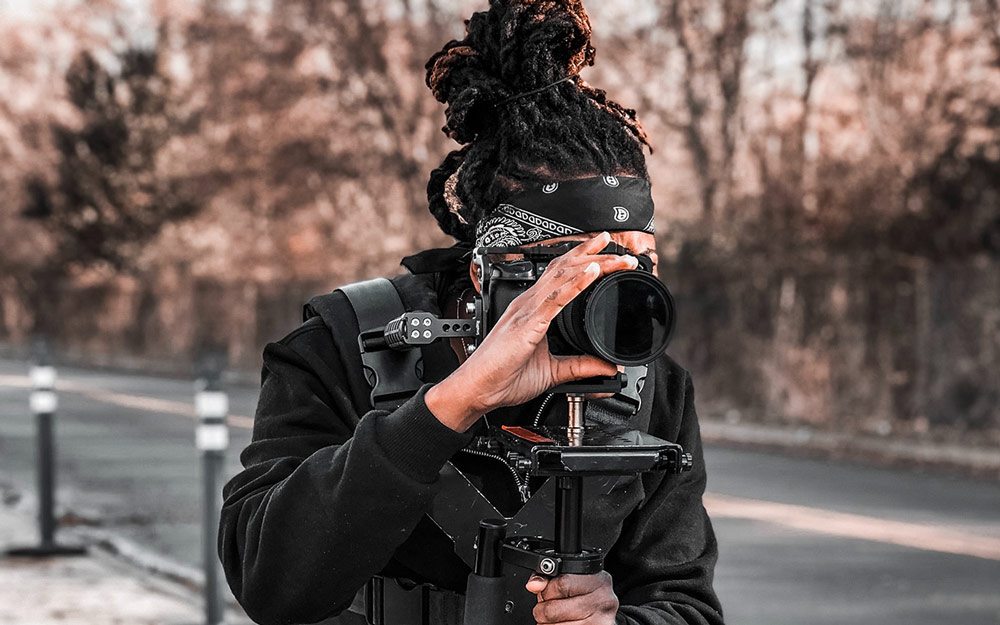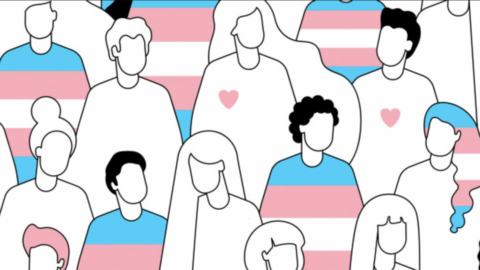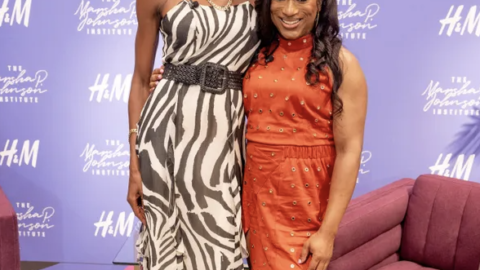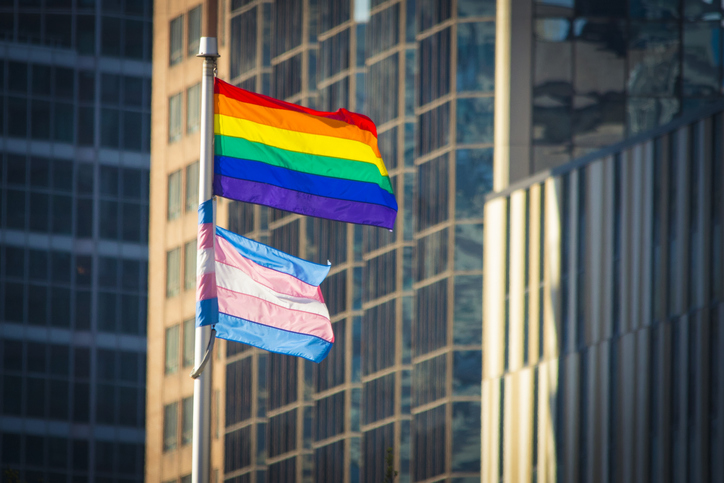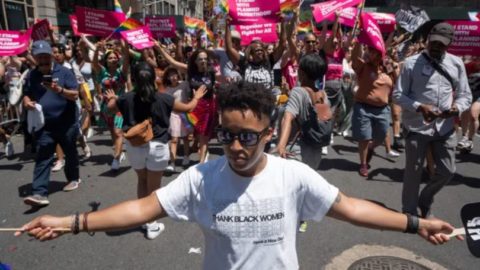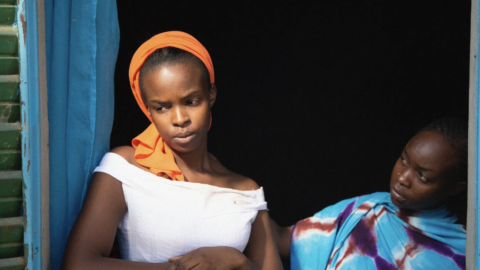Image Credit: Erica Lewis on unsplash
As seen on NPQ by Bridgit Antoinette Evans and Tracy Van Slyke.
This article is the fourth installment of NPQ’s series on Community-Driven Philanthropy. In this series, movement leaders explore what’s possible if philanthropy adopts a reparative model—one in which it supports the leadership of BIPOC communities, not just by writing grants, but by shifting assets and control over resources to frontline communities.
Who will tell the stories that shape our future? These days, in the United States, this is a matter of fierce disagreement. On one side, a multiracial majority of people believe the US is destined to become a flourishing democracy. On the other, a white nationalist movement steadily advances its vision for a white Christian ethno-state.
To say that the project of US democracy is at risk is far from hyperbole. White nationalists have amassed a political and narrative infrastructure that churns out a toxic pool of ideas and stories, spreading disinformation ever more widely.
In its first five years, the Pop Culture Collaborative—a philanthropic fund co-founded and led by BIPOC, women, and queer funders and field leaders—has taken steps to learn about this white nationalist movement. We now sit with a hard truth: the social justice sector is being outspent and outpaced by a movement that is rapidly gaining ground.
To turn this around requires understanding that securing democracy in the US will take more than tolerating difference. In our work, we draw on concepts of democracy first developed by the Iroquois Confederacy and other Indigenous societies—political theories that connect the democratic systems and pluralist cultural norms that together make societies resilient.
Given the stark realities of generational trauma and structural inequities, building a pluralist democracy in the US requires a multifaceted strategy—coordinated across many movements, industries, and fields—that is accountable for and seeks to repair past injustices. This strategy requires centering narrative and cultural strategy and prioritizing BIPOC leaders as stewards of this work.
It also requires an historic investment of resources.
A Field Ready to Meet This Moment
When Ryan Coogler released the first Black Panther film in 2018, the narrative landscape was forever changed. Even amid contentious elections and polarization, the film produced a watershed of cross-cultural celebration and creative expression among artists, journalists, cultural critics, social justice organizers, and fans. Coogler’s storytelling also rippled through the racial justice movement; Black-led movements, organizations, entrepreneurs, and brands gained visibility, built power, and expanded their support bases.
While Wakanda’s capture of the American public’s imagination is a shining example of what becomes possible when pop culture and social justice movements come together to create change, it doesn’t have to be an isolated occurrence.
In its first five years, the Pop Culture Collaborative invested nearly $20 million in a BIPOC-led ecosystem of pop culture storytellers, narrative and cultural strategists, researchers, and social justice organizers who are building out a sustainable pop culture narrative change field with the ability to achieve narrative reinforcement of core messages reliably, routinely, and at scale.
Pop culture is one of the most influential arenas shaping how people make meaning and forge identities.
A core element of this strategy is a narrative systems approach to cultural power building—a methodology rooted in the belief that we move through our lives immersed in “narrative oceans” of ideas, cultural norms, and stories. These narrative oceans shape how people think and feel about themselves, other people, and the world.
Pop culture—the big ideas and stories that flow through television, movies, digital and social media, music, books, sports, journalism, political campaigns, and other cultural platforms with which millions of people engage everyday—is one of the most influential arenas shaping how people make meaning and forge identities. It influences how people behave, whether they value or dehumanize others, and how they participate in democratic process and define their truth and reality. Narrative change investments are therefore critical and need to be supported at a scale equivalent to its level of influence on society and coordinated with other essential organizing and policy change strategies.
Indeed, the power of investment in narrative strategies is already evident. The National Domestic Workers Alliance (NDWA), United We Dream, and artist Paola Mendoza led the national outcry against the separation of immigrant children and parents at the US border in 2018. Later that year, NDWA partnered with entertainment company Participant Media and filmmaker Alfonso Cuarón to produce an impact campaign that, along with Cuarón’s award-winning film, Roma, highlighted the stories of domestic workers around the globe.
#MeToo founder Tarana Burke, labor organizers Monica Ramirez and Ai-jen Poo, and a diverse coalition of survivor-organizers created the groundswell around sexual harassment and violence when they launched TIME’S UP at the 2018 Golden Globes, convincing most female attendees to wear black in order to make a statement against sexual harassment in the entertainment industry. Imara Jones of TransLash and Elle Moxley of Marsha P. Johnson Institute are mainstreaming the role that transgender and nonbinary people play in the racial justice movement, the fight for abortion access, and the radical reimagining of this country’s future. Nelini Stamp, Sarah Sophie Flicker, and hundreds of other artists and cultural strategists used the experience of joy and the feeling of abundance as a cultural strategy to bring out the vote during the 2020 presidential election, helping to make possible the largest voter turnout in US history. Civil rights leader Eric Ward sounded the alarm on the threat of a well-resourced, organized white nationalist movement years before the January 6th insurrection.
Yet another inspiring example of narrative strategy is the work of IllumiNative’s Crystal Echo Hawk, whose #TheTimeIsNow campaign forged bonds between Indigenous and Black communities and organized a virtual town hall that drew more than 190,000 viewers, an important tipping point in the campaign to remove a racist slur from the name of Washington D.C.’s football team. This is just one step in a broader Native-led movement to center Indigenous sovereignty in the story of America’s future.

